We highly recommend reading these few lines but, especially if you plan to rent a vehicle, scooter, motorbike or car in Koh Samui, read our full tips for any rental, which will save you a lot of hassle. They are filled with warnings and tips that will make your island experience even more enjoyable.
SUMMARY
- Presentation of Koh Samui.
- Activities and Discoveries: What to do and what to see in Koh Samui?
- Weather and climate in Koh Samui: What is the best time or season to go to Koh Samui?
- What are the periods of heavy rains on Koh Samui?
- What is the cost of living at Koh Samui?
- How to get to Koh Samui?
- Transfer/shuttle/transport service to and from the piers and the airport of Koh Samui.
- How to get around on Koh Samui Island?
- Accommodation in Koh Samui.
- Rent bungalow or villa in Koh Samui.
- Which neighborhood to choose for holidays in Koh Samui?
- Real Estate Investment in Koh Samui.
- Food: What can eat in Koh Samui?
- Shops and shopping in Koh Samui.
- Exchange Rates - Currency Exchange - Use credit cards in Thailand and Koh Samui.
- Walking street: These unavoidable charming night markets.
- Beach and idleness in Koh Samui.
- Nightlife and parties in Koh Samui.
- Get to Full Moon Party at Koh Phangan from Koh Samui.
- What are the dates of the Full Moon Party for 2019?
- See a Muay Thai Boxing fight on Koh Samui.
- Tropical Fauna of Koh Samui.
- Health & Medical, hospitals, medicine in Koh Samui.
- Immigration office - Visas and length of stay in Thailand.
- Can and should we negotiate prices in Thailand? In Koh Samui?
- Should I leave a tip at a restaurant, massage or hotel in Koh Samui?
- Thai New Year and Water Festival, pour water for Songkran Festival.
- Feet in Thailand.
- Head in Thaïland.
- Wai, the traditional Thai salute.
- Polite dress code required to visit a temple in Thailand.
- Security and theft at Koh Samui.
- Always keep your passport and the departure card with you or in a safe place.
Presentation of Koh Samui:
Koh Samui is an island in the Gulf of Thailand, in the province of Surat Thani, located off the southeast coast of Thailand. Its surface is 250km2 and the road that goes around it (the ring road or main road) is 51 km. Koh Samui is known as one of Thailand's most luxurious and popular seaside resorts but still retains many very authentic parts.
This tropical paradise is covered by a lush jungle of palms, and coconut trees, offering every day, sumptuous sunrises and sunsets, and enjoying a relief typical of islands, between white sand beaches and green hills.
Enjoy its tropical climate with 30 degrees Celsius all year round, the intense sun sometimes soothed by some refreshing showers, and discover its charms and traditions, navigating between some very touristic areas and the authentic neighborhoods a few streets, populated by locals and offering typical local markets.

Activities and discoveries: What to do and see in Koh Samui?
Relax in one of the many spas and massage parlors, very inexpensive or more luxurious, there is something for all tastes and budgets.
Explore the waterfalls like the beautiful Namuang waterfall, take a picture in front of the surprising rocks Hin Ta and Hin Yai, located by the sea and curiously resembling intimate parts of the human anatomy, go sea kayaking, visit the sanctuary of elephants, walk the jungle and refresh yourself in several waterfalls, come to you gather in one of the many temples (Wat Plai Laem and Big Buddha Wat Phra Yai) or in a secret garden with many Buddha sculptures in the heart of Koh Samui.
Meet extraordinary animals at the Tiger Zoo or Crocodile Farm, or if you prefer gastronomy to strong emotions, why not risk a few Thai cooking classes?
The most adventurous, and thrill-seekers, will test the tree climbing and their zip lines, or giant slides, pool parties, parasailing, jet ski, and so many other water sports.
If relaxation and spirituality are your main interests, renowned yoga centers offer internships or sessions all year round.
Koh Samui is also the ideal base for trips to nearby islands, snorkeling, scuba diving (as at Sailrock), where you can admire corals, barracudas, turtles and manta rays (Samran Pinnacles, Koh Kradan), explore the wilderness at Ang Thong National Marine Park, discover an almost uninhabited island in Koh Tan, and finally of course, attend the famous Full Moon Party, taking place every month, about 30 minutes by boat from Koh Samui.
You can also easily book at every street corners, trips to the sea, whole day or half-day, in speedboat or catamarans, with meal and activity options around the treasures of Koh Samui.
As you can see, the activities and possibilities for discovery are endless in Koh Samui. Explore by car or scooter, walk the steep verticals of the center of the island to unceasingly discover splendid landscapes, especially since the many arranged points of view. Enjoy white sandy beaches, with crystal clear waters, visit the tropical gardens of this idyllic area, relax and enjoy the refreshing sea breeze in the shade of palm trees, and find calm and serenity in the heart of Buddhist temples on the island.
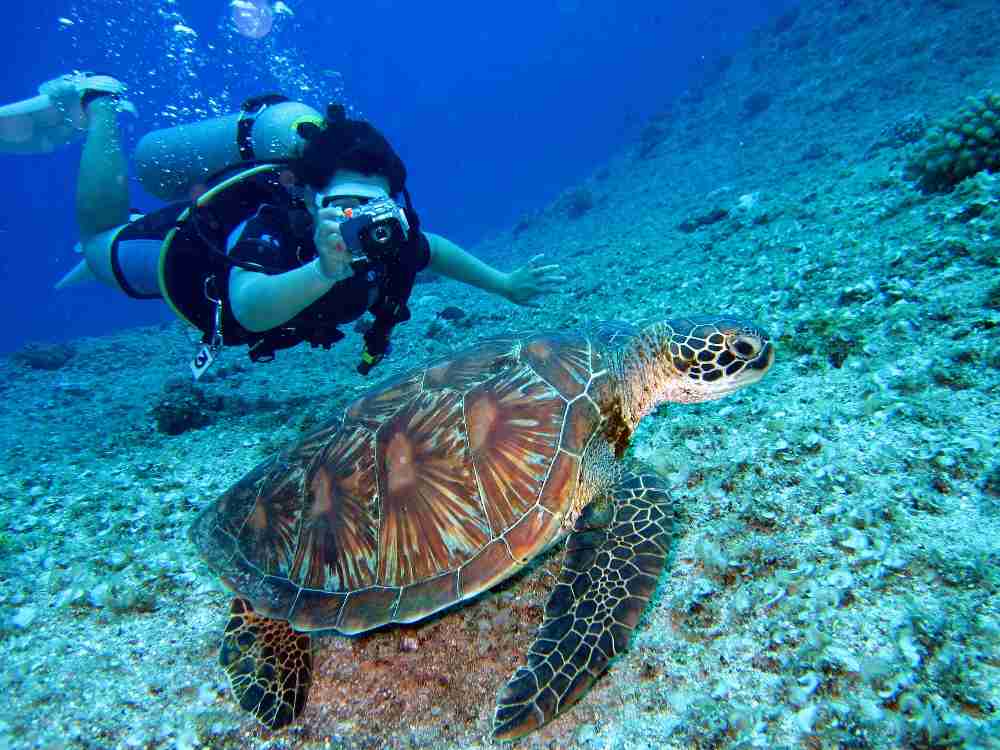
Weather and climate in Koh Samui: When is the best time or season to go to Koh Samui?
In Koh Samui, it's hot all year long, count on average 30 degrees Celsius, with some night refreshments in January and February, but only rarely under 20 degrees. May and June are usually the hottest months, and the temperature felt is sometimes intense. It is usually in April that the UV index is the highest, remember to protect yourself because the sun burns.
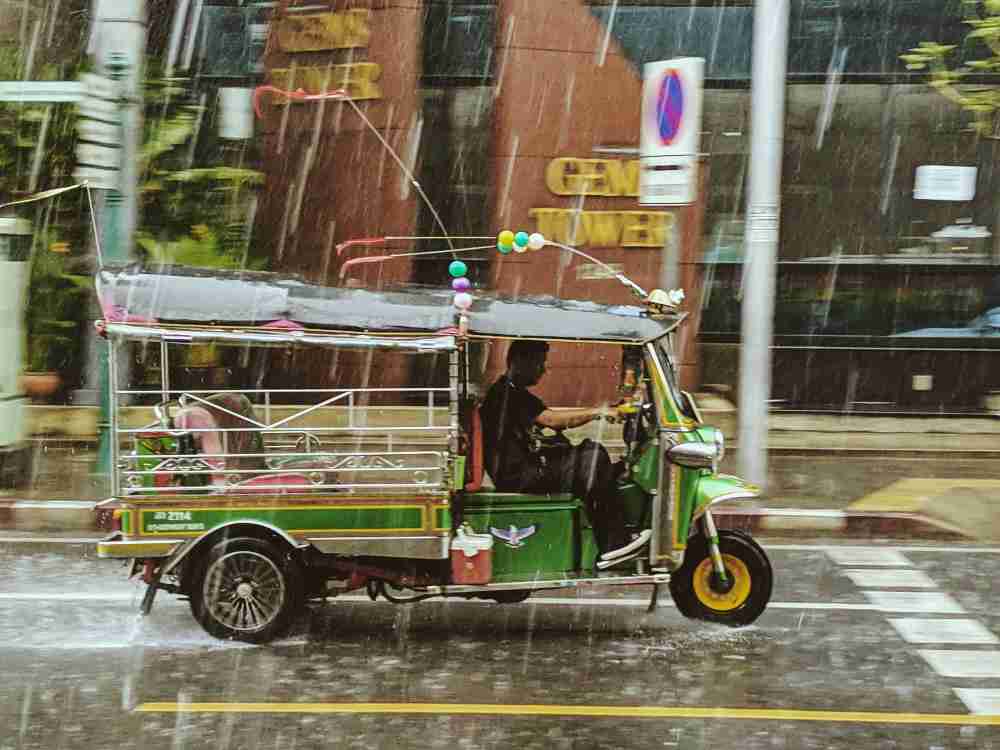
What are the periods of heavy rain in Koh Samui?
The rain can fall at any time of the year, but the period from October to the end of December even early January is the most conducive to heavy tropical showers, which can last several days and cause flooding. It is not impossible, however, at any time of the year, to have to deal with some heavy tropical showers, usually short, or to suffer a few days of a cloudy sky. As in most islands, it is common to see a neighborhood under water, while another part is in the sunshine.
What is the cost of living in Koh Samui?
The cost of living in Koh Samui is slightly higher than the average in Thailand, as this is often the case on islands. Indeed you will often pay more for the same product or service, most of which must be shipped by ship from the mainland.
If you are eating in a European restaurant, expect to pay a price close to prices in Europe, depending on the origin and quality of the products. By eating locally will save you a lot of money, from 50 to 80 baht for a bowl of fried rice or pad thai, or count 120 to 150 baht for a curry accompanied by steamed rice. These prices vary greatly depending on the location, a table having feet in the sand risking, of course, to cost you more than a small, simple, roadside snack bar.
For accommodation, again, the amount will vary greatly depending on location, season and level of the services offered. Count a minimum of 600 baht per night, for a double room with private bathroom and air conditioning, close to the main tourist areas, and about 800 to 1000 baht for the same room in high season. No limit for the maximum, as it is possible to devote a very substantial budget on Koh Samui for upscale accommodation in one of the many luxury hotels or resorts on the island, or for rent a villa on the heights, for breathtaking views (and sometimes prices).
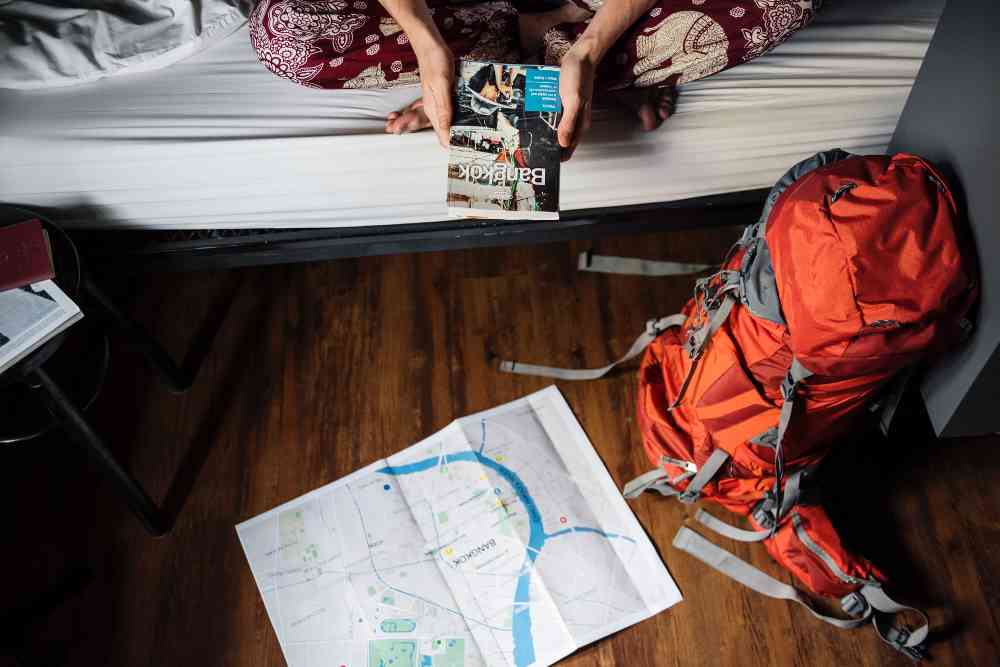
How to get to Koh Samui?
There are 2 main ways to get to Koh Samui, by plane or boat.
The only airport of Koh Samui (USM international code), allows going there in about 1 hour from Bangkok, the Thai capital, or from Kuala Lumpur in Malaysia, or from many other destinations like Singapore or China. The Bangkok Airways company holds the monopoly on this international airport, that's why tickets are relatively expensive, and prices tend to increase rather than go down.
Another cheaper but much longer option is by sea. Count, indeed, 150 baht per person per way without a vehicle, to cross the sea by ferry for about 1h20, from the mainland via the port of Donsak. Embark with a vehicle remains possible, for a very reasonable budget, but remember to book, especially around the Full Moon Party events.
You can reach the port of Donsak by road, and shuttles allow you to get there from the far cheaper airports in Surat Thani (SRT) or Krabi (KBV), both international airport, or the more distant Nakhon Si Thammarat Airport (NST). Note that several low-cost airlines connect these airports to Bangkok but beware, most planes take off from Don Muang (DMK) and not from Suvarnabhumi (BKK). Pay attention to the name of the airport written on your ticket to Bangkok to not miss a connection if you must reach the other airport in Bangkok.
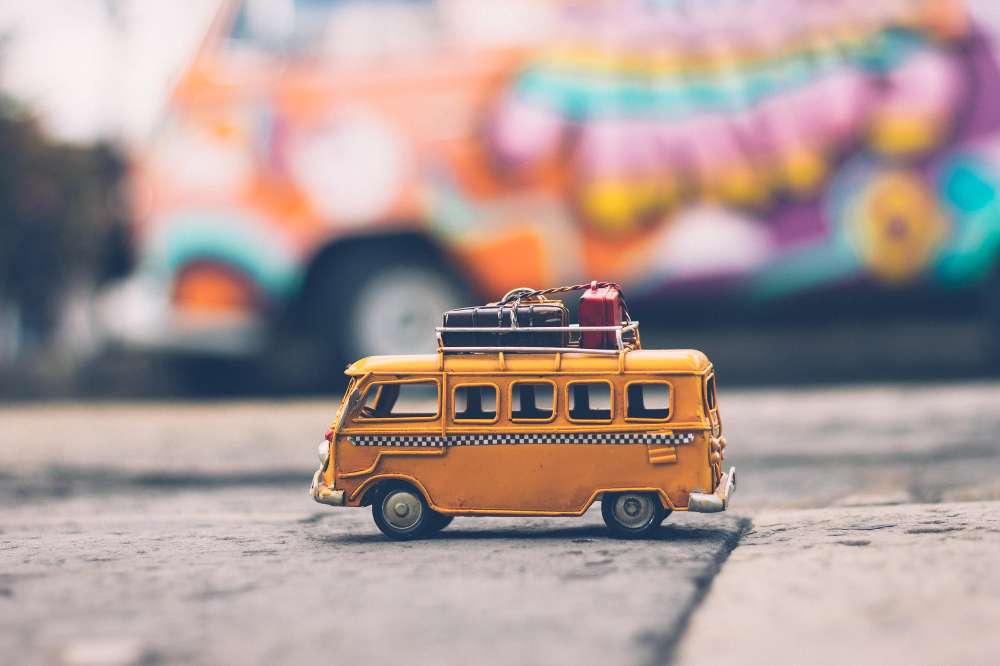
Transfer service, shuttle, transport, to and from the port and airport in Koh Samui
You arrive in Koh Samui by plane or boat and would like to rent a vehicle to visit freely the island? James Rental Samui has a wide selection of cars and scooters, and delivery and return are possible anywhere upon prior request, so you avoid expenses additional taxis or shuttle on your arrival and the day of your departure. excellent new, if you decide to rent a vehicle from James Rental Samui, we offer you this service free from 3 days rental. Contact us now to learn more and book your rental.

How to get around on the island of Koh Samui?
To move on the island of Koh Samui, no tuk-tuk, but many pickups arranged with benches, or taxis (with rarely used meters), so it is better to negotiate ride before climbing. Koh Samui offers plenty to see and explore, so it's better to opt for the rental of a vehicle and be free to move according to your desires.
To move on the island, here are the main means of transport:
- Car or motorbike rental: by far the best option for you to move freely day and night.
- Taxis: The meters are rarely or never used, negotiate the price of the ride before going up,
- Moto-taxi: like a taxi but on a motorbike, not always comfortable, especially for 2 passengers, but very fast and cheaper,
- Song-teow: these many pick-up trucks with benches in the back, which pick you up on the side of the road and will drop you almost everywhere on their circuit established on the main axes.
- Cycling: Bicycle is rare and not well adapted to traffic in Thailand.
- Mini-van: convenient for transfers between ports, airport, and hotels, count 150 Bahts per person. Many hotels can contact them and book a transfer for you.
- Walking: not always practical because of the absent or congested sidewalks, watch out for stray dogs at night.
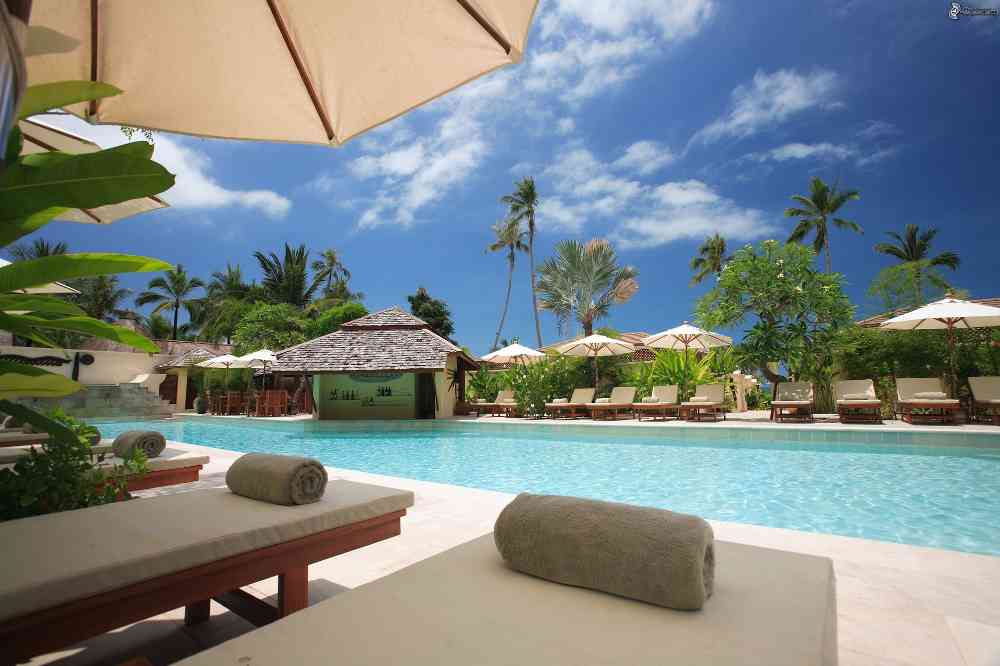
Accommodations in Koh Samui:
On Koh Samui, you will find all the facilities to accommodate you. From dormitory accommodation for backpackers to bed and breakfasts or basic comfort hotels to European standards, hotels, spas, luxury resorts often by the sea, villas, and residences with sea views and infinity pools, clubs, and family hotels ... Everything is possible in Thailand, and especially in Koh Samui, and generally without spending a disproportionate budget.
Chaweng, Phut Bo, Mae Nam, Bang Rak, and Lamai are the most touristic areas of the island, but you may prefer more remote areas and their tranquility.

Rent a bungalow or villa in Koh Samui
Everywhere on the island of Koh Samui, you will find individual bungalows or villas available for rent for short and long term. Whether you want to stay there for a week, a month or even a year, it is very quick and easy to find ideal accommodation on the island.
Most owners are Thai, some will sometimes speak little English, but you always find an arrangement or someone to assist you and understand your interlocutors.
Usually, you will pay in advance for your entire stay and a guarantee deposit which will be returned to you at the end, if you have not caused any damage and returned all the keys.
You will easily find individual bungalows with a single room for about 10,000 baht per month (around 280 euros), some with shared pool, sometimes much less expensive if you move away from tourist areas.
If your budget allows you, you can also opt for more spacious accommodations and, why not, a villa in the heights of the island. We can guide you if you wish more information on accommodation in Koh Samui.

Which neighborhood to choose for a holiday in Koh Samui?
To the east of Koh Samui, Chaweng is probably the most popular area among tourists. You can easily find places away from traffic and noise, and enjoy the wide range of nightlife and shopping available in this area.
Further south, but still on the east coast of Koh Samui, Lamai is also well supplied with bars and restaurants, but in a quieter and generally less crowded environment, excepted during the Sunday night Walking Street, this night market that attracts many passersby, and makes the main axes of the district closed to the circulation, and during the free Muay Thai boxing fights, taking place on Saturday night in the middle of the neighborhood bars.
Going further north from Chaweng this time, following the main road to the west of the island you will discover Bophut and the famous Fisherman's Village, this ancient village of fishermen, today become one of the most popular areas of Koh Samui. Indeed, for many years, this village has become the perfect place for tourists willing to pay the price to eat in many restaurants with high-quality European cuisine. It reigns there a rather calm and relaxed atmosphere although the clientele is generally more demanding and elegant than in Chaweng. The main road of the village is generally closed to the traffic in the evening for its market every Friday night, the Walking Street, extending to The Warf, a set of shops facing the sea, and connecting it to the main road of the island.
Going along the north coast of the island and following the main road to the west, you will arrive in Mae Nam, nice village rather well supplied in restaurants too, but much less than the neighborhoods previously mentioned. Mae Nam wants to be very relaxed, and its beautiful beach is perfect for those looking for a beachfront hotel without getting too far from amenities or over-budgeting.
Returning between Bophut and Chaweng, make the detour to Bang Rak and Plai Laem while leaving the main road. You will find most of the speedboat piers for various excursions, as well as departures (and arrivals) to the islands of Koh Phangan and Koh Tao. Many bars, restaurants, and small shops will welcome you, and it is here that you will see the best sunsets without getting too far from the road leading to the Big Buddha Temple, this impressive Buddha perched on a promontory and offering a superb view of Bangrak Bay and on Koh Samui airport.
Not far from the Big Buddha, if you continue to Choeng Mon, you can also visit the beautiful Wat Plai Laem, this temple surrounded by water where you can obey the tradition by feeding the innumerable and insatiable fish.
Before returning to the Chaweng animation, you will discover the family-friendly village of Choeng Mon, its beautiful beach, its calm and relaxing shops, and restaurants.
Many other parts of the island could be described here, but we will not dwell on it not. Everywhere else, know that if you risk feeling a little far from everything by choosing accommodation outside the areas described above, however, you will find many accommodation solutions often cheaper and offering absolute calm.
A small exception to this calm, the city of Nathon, located at the west of Koh Samui, and which is the capital city and main arrival of ferries connecting the island to the mainland, to the port of Donsak and the city of Surat Thani or Krabi. Nathon is not very touristy, but you will find the best bargains there and observe the "real" life of the locals.

Real Estate Investment in Koh Samui:
Like many tourists visiting Koh Samui, you may well be tempted to take the plunge, and get started in the lucrative real estate investment on the island, or simply acquire your second home, or like many retirees, elect domicile in the tropics. You would be right because this tropical paradise offers high-return investment options and solutions. Do not hesitate to push the door of well-established agencies or to ask us our recommendations.
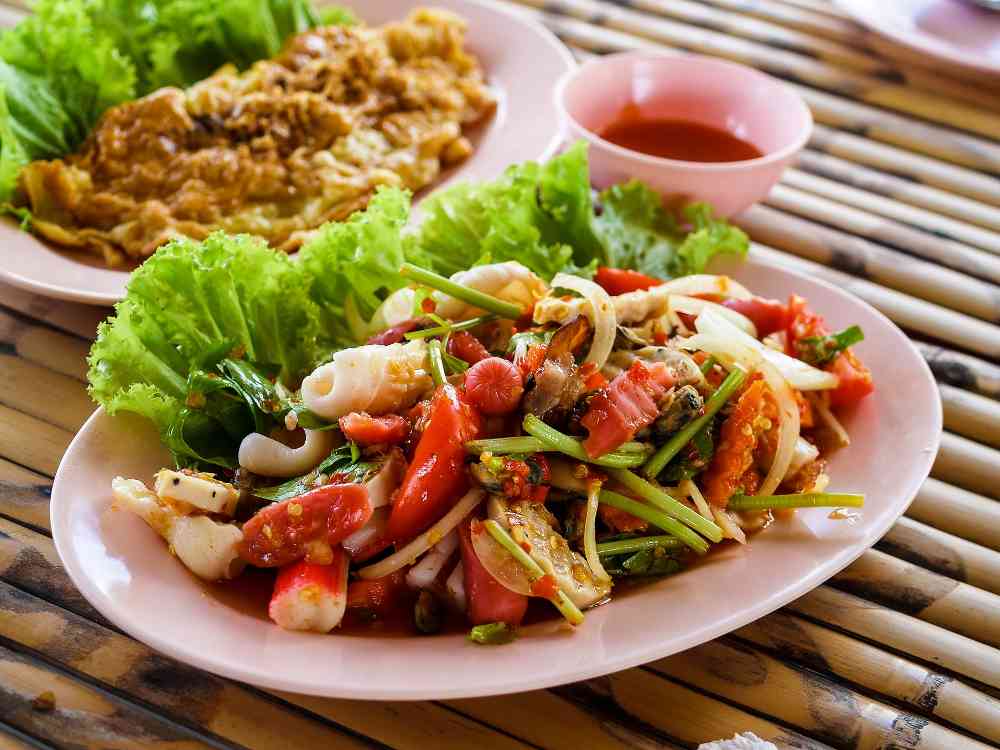
Dining: What can we eat in Koh Samui?
In Koh Samui, you will find a local and international cuisine, fried rice, the famous pad thai, curries, a glutinous rice dessert with coconut milk and mango, pizzas, burgers, specialties from many European countries (Greek , Italian, French, Australian ...) but also Indian as well as some vegetarian or organic addresses.
Seafood and freshly caught fish, smoothies prepared under your eyes, ice rolls typical of the country, do not expect to deprive you at the table in Koh Samui! Enjoy every day fresh tropical fruits like you have never tasted, and do not be afraid to take a few pounds during your stay.
Shops and shopping in Koh Samui:
If for you, "holidays" rhymes with shopping, or if you just want to find a little fresh air in the city center, the big shopping mall Central festival offers brand shops and many tourist restaurants.
Make your main food shopping at supermarkets like Makro, Tesco Lotus or Big C and its wide selection of products imported from Europe (including the Casino brand), or Tops Market located at Central Festival.
For small purchases at any time, you will find essentials and fast food at great prices in all Family Mart or 7 Eleven, known to never close and to be at each crossroads of Thailand. You will not be able to do without these shops for your cigarettes or cravings, any time of the day or night.
Exchange rates - Foreign exchange offices - use of credit cards in Thailand and Koh Samui.
The official currency in Thailand is the Thai Baht symbolized by the 3 letters THB. Its value depends on the current exchange rate that changes constantly, and it is good to check the exchange rate throughout your stay.
At the time of writing, 1 Euro is trading for around 36 Baht and can rise to 37 or 38 the next day. If you have cash in another currency such as the US Dollar or the Euro, you will easily find currency exchange offices throughout Thailand, at least in urban and tourist areas.
In Koh Samui, these offices are everywhere, but few are open at night, so think about changing before closing. Most exchange offices will ask for your passport to complete the transaction. Compare the rates that each office offers, there are sometimes strong differences, and better to choose the best rate.
If you prefer to make a withdrawal in ATM, you will find ATMs in every street, these ATMs with the colors of the main banks in the area. You can trust its distributors but beware, here too the exchange rates will sometimes be very different from one machine to another.
All these ATMs will add 220 baht of transaction fees for each withdrawal from foreign cards, so do not hesitate to withdraw larger amounts directly, with most ATMs limiting you to 20,000 baht per withdrawal.
Finally, it is generally not advisable to make card payments directly in the shops but you should prefer doing a cash payment instead. Note that most merchants who are equipped with payment terminals will probably charge a commission of 3% or more, rarely less, for the fees associated with this payment method.
Due to frequent cases of credit card fraud in Thailand, we recommend that you use this method of payment only at trusted institutions such as national banks, large hotels, and large chain restaurants.

Walking street: These must-see charming night markets.
All week long, all year round, you'll find the Walking Street, a roaming market offering a wide range of food and souvenirs, handicrafts, clothes, and fabrics ... Prices are generally very reasonable.
Here is the schedule (subject to change):
Monday: Fisherman's Village Bophut (smaller than Friday).
Tuesday and Wednesday: Central Festival Chaweng on the Lake Side Parking, from 17:00 to 23:00
(5 pm till 11 pm).
Thursday: Mea Nam, from 17:00 to 22:00 (5 pm till 10 pm).
Friday: Fisherman's Village Bophut, from 17:00 to 23:00 (5 pm till 11 pm).
Saturday: Large car park at Chaweng Lake, in front of Central Festival, from 17:00 to 23:00 (5 pm
till 11 pm).
Sunday: Lamai, from 17:00 to 22:00 (5 pm till 10 pm).
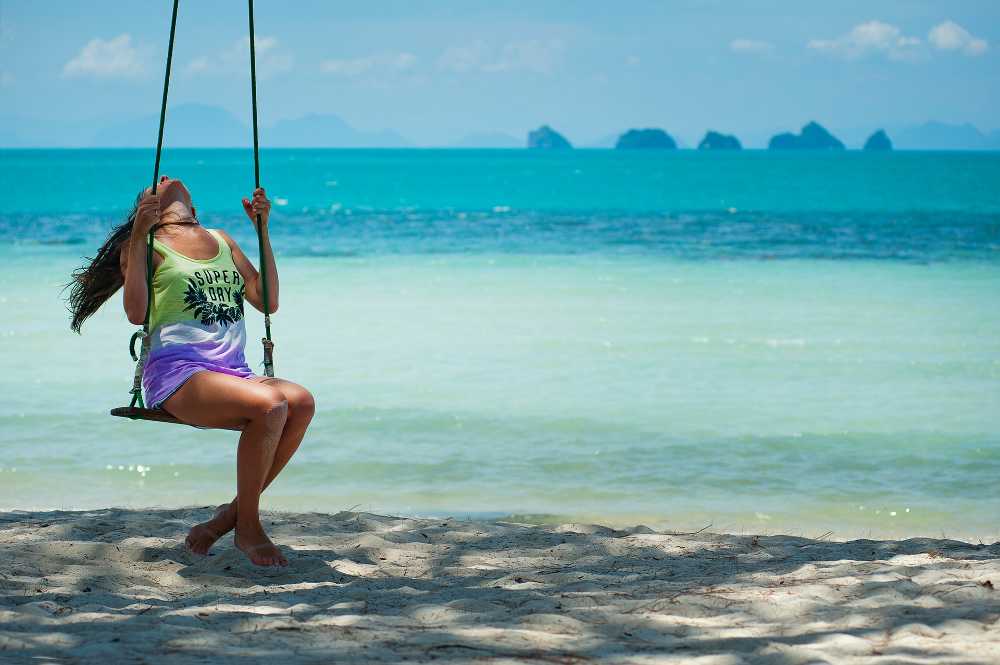
Beach and idleness in Koh Samui:
On the beaches and idleness side, a few places stand out, such as the sumptuous Silver Beach / Crystal Bay, or Coral Cove / Beach Republic, between Chaweng and Lamai, or the quiet and family-friendly Choeng Mon beach to the Northeast.
Less accessible but equally wonderful are the creek beaches in Choeng Mon, accessible for example by the Melati Hotel, not far from the impressive Big Buddha Temple.
These beaches are just our preferences near the James Rental Samui agency, but nothing beats going around the island and discovering its many accesses to the sea, sometimes reserving you some wonderful surprises, like some beaches often deserted in the southwest or north of Koh Samui.
Nightlife and festive in Koh Samui:
Samui is also known for its vibrant nightlife.
Know that night falls before 7 pm all year round, so night activities start early. Enjoy food markets, these night markets at great prices, where you can taste many local dishes while discovering the culture of the island's inhabitants.
To continue the evening, you will be spoiled for choice among the many reggae bars, electro, live bands, hip-hop club, and R'n'B as the Hush Bar, bigger clubs like the Green Mango, or the huge and must-have Beach Club and Resort Ark Bar.
Follow passers-by to know the hot spots of Koh Samui nights.
Get to the Full Moon Party in Koh Phangan from Koh Samui
The Full Moon Party is a world-famous festival, attracting tens of thousands of people to gather once a month on a single beach in Haad Rin on Koh Phangan Island to dance on the sound of electronic music, about 30 minutes from Koh Samui by boat.
Each establishment proposes its musical programming with DJ, lights, and show of fire. The monthly event has been taking place on every full moon, for more than 30 years and every transition to the New Year.
Since most of Thailand is a Buddhist religion, dates are sometimes adapted to avoid certain "Buddha days" during which alcohol consumption is prohibited. Alcohol flows afloat in the buckets, the bucket full of alcohol in which party animals drink with a straw, covered with paint and fluorescent clothing as tradition dictates.
If you plan to attend a Full Moon Party, we recommend that you find accommodation in Koh Samui and get there in the evening, by the many boats making the shuttle all night long, in order to avoid the inconvenient congestion and room rates of Koh Phangan at this time.
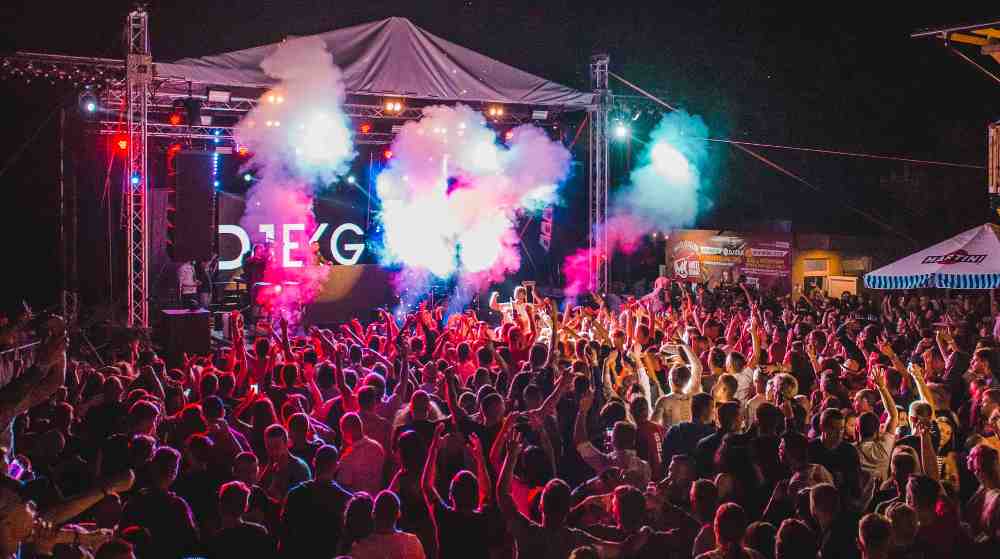
Full Moon Party dates for 2019 are as follows:
Sunday, January 20, 2019
Wednesday, February 20, 2019
Wednesday, March 20, 2019
Friday, 19 April 2019
Sunday, May 19, 2019
Monday, June 17, 2019
Thursday, 18 July 2019
Thursday, August 15, 2019
Friday, September 13, 2019
Monday, October 14, 2019
Monday, November 11, 2019
Wednesday, December 11, 2019
Tuesday, December 31, 2019
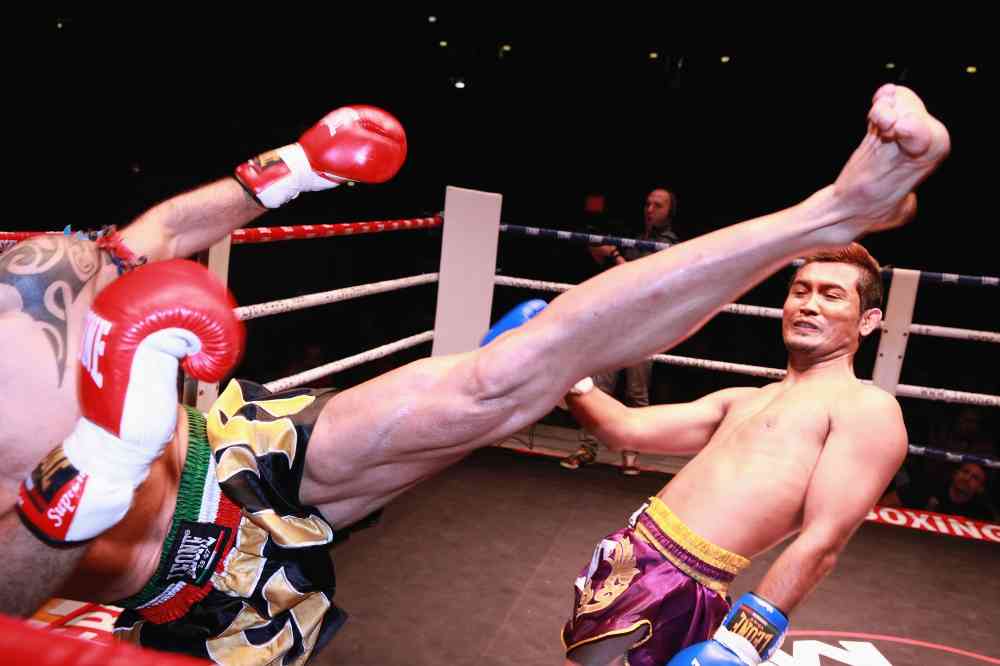
See a Boxing Muay Thai fight in Koh Samui:
It would be inexcusable to have a stay in Thailand without attending a Thai boxing event, the famous Muay Thai, which sees local and often international fighters fight with feet, elbows, knees, and punches in a traditional musical atmosphere.
There are several Stadiums competing on the island, and you will not miss the flyers and promotional cars that pace the streets, the days before and the same day of every event. Prices vary depending on the stadium and the level of the fighters at the same time. Expect to pay more than 1000 bahts to access the stadium, and attend, being seated, several fights during the evening.
If you are not sure to enjoy the show, or if you prefer to save your money to other centers of interest, you can attend free fights on Saturday night in the central ring in the middle of bars of Lamai. The atmosphere is generally nice, but the fighting is not always of the highest level.
Tropical fauna of Koh Samui:
During your stay on the wonderful Koh Samui, you will often encounter a surprising tropical fauna, composed of harmless (but sometimes venomous) snakes, spiders, rare scorpions, cockroaches and roaches, flies and mosquitoes serving as many geckos, these little cute lizards usually cohabiting with you. You will probably have the chance to see some birds with sublime colors, this other characteristic peculiar to the tropics.

Health and Medical, Hospitals, medicine in Koh Samui
Know that most hospitals in Koh Samui provide quality care, but their services are mostly very expensive. Remember to subscribe to insurance before your trip to Thailand, and then enjoy a treatment in the best hospitals on the island. Ask about the coverage offered by your payment cars such as Gold Mastercard or Visa Premier before you purchase third-party insurance.
You will find many pharmacies everywhere, selling all kinds of medicines at reasonable prices, often without a prescription. No need to overload yourself with medication, except of course, if you depend on a particular treatment (think in this case to carry with you the order, in case of control by the customs on your arrival).
Immigration Office - Visas and Length of Stay in Thailand:
Visa regulations and exceptions are sometimes complex and change very regularly. We prefer not to give you any information about this, but you are strongly advised to contact the Thai Embassy in your country, in order to get the latest updates.
Once in Koh Samui, many travel agencies are specialized in the advice and the obtaining of visas or the extension of stay. You can also go directly to the immigration office located in Mae Nam at the following address: Google Maps
Can we and should we negotiate prices in Thailand? In Koh Samui?
Some countries see price bargaining as an insult, others as an inevitable game with every purchase. In Thailand, trading is common in tourist markets, much less in more remote areas seeing few foreigners. In Koh Samui, sellers are accustomed to tourism, and often display already increased prices for foreigners. Even in pharmacies, it is likely that a Thai resident pays only a third of the price written on a medicine package.
To the extent reasonable, you can try to divide by 2 or 3 an advertised price, but know subtly recognize the receptivity of the seller. As in many countries, do not start the game of negotiation if you do not really want to buy, out of respect for the seller who seeks above all to make a living.
For any transport not explicitly priced, for example a taxi who does not start the meter (which is theoretically illegal), you will have to negotiate the ride before going up, and do not hesitate then to sacrifice the prices announced by the driver who will surely try the jackpot, especially at night, seeing some tourists drunk or disoriented.
Finally, it is not uncommon to see groups negotiating a price at the restaurant or in the markets, free to try this practice often considered stingy by locals, but they could accept rather than see to leave a large group at their more cooperative neighbor.
Also note that in many markets in Koh Samui, prices are somehow fixed to avoid extreme competition and that a restaurant will, therefore, be reluctant to grant you a price cut, but will prefer to reward your sympathy with some extra food.

Should you leave a tip at the restaurant, massage or hotel in Koh Samui?
The tipping policy is also rather random, from one country to another. In Thailand, the tip is not systematic, but of course, always appreciated. The challenge is to know how to estimate the local value.
For example, in Koh Samui, a restaurant waiter will probably be paid around 10,000 baht a month and will eat a local dish for around 50 baht. It is therefore up to you to judge whether or not the staff deserves a tip, often depending on the total amount of your bill.
In hotels, as in restaurants, employees will always appreciate a tip as a thank you for their attention to you.
In a spa-massage, most masseuses receive a minimum of 150 baht per hour of massage, regardless of the price paid by the customer, rarely more, except for certain specialties, and most are only commissioned and do not touch therefore any fixed salary.
Feel free to reward staff who have treated you particularly well.

Thai New Year and water festival, pour water on the occasion of Songkran Festival:
Every year, on April 13 and for several days, Thailand is celebrating the Thai New Year, Songkran Festival, celebrated by watering all passersby, preferably foreigners, sometimes very cold because loaded with ice cubes, water not always very clear but often abundant.
On the island of Koh Samui, the authorities usually limit this famous feast of water to 1 or 2 days, to avoid any shortage of water, the reserves being sometimes very low in this very hot and dry season.
It is also good to brush the faces of passers-by with a paste made of talc and tiger balm, this mixture giving a sensation sometimes refreshing, sometimes hot, but always as amusing (as long as the eyes are not affected).
If you visit Thailand or Koh Samui during this period, you will not be able to escape these rituals unless you stay cloistered at home. Enjoy this unique atmosphere to mingle with the crowd, and water yourself. Invest like many, in a good waterproof pouch to protect your most fragile belongings, and in the most powerful water guns that you can find. For smaller budgets, a simple bucket will do, and you will find large basins of water along the roads to recharge your weapons.
Of course, it can be quite imprudent to drive in crowds who will not hesitate to water you anyway. The choice of renting a car rather than a motorcycle during Songkran Festival is not a bad idea, and the more cautious will be able to cross the streets and admire the festival, undercover.
Feet in Thailand:
Most tourists who come to Thailand are not familiar with the customs and culture of the country. It is often considered unhygienic by tourists, and impractical to take off shoes to enter a trade or housing, it is, however, the rule almost everywhere.
For this reason, it is strongly recommended to be in the local fashion, by adopting flip-flops, these easy open shoes that are quick to remove and step over a door. You will generally understand that you have to take off your shoes when you see several shoes left, often in disorder, outside an establishment.
Do not worry, there are few thieves and you should find your shoes when you leave. Not taking off these shoes to enter a place will be very poorly perceived, and comparable to an insult, the non-respect of the culture.
Often more difficult to understand by strangers, it is very bad to point someone or something with your feet. This practice is also perceived as an insult to the person being pointed. So be careful, especially in transport, not to direct your feet towards someone, or to approach your feet of the head of another passenger.
The head in Thailand:
In Thailand, it is perceived as an insult, or a lack of respect, to touch the head of others, especially of a man, with the hand. If this gesture may seem commonplace in our cultures, it is here a sign of inferiority and humiliation. Remember this information before touching the head or hair of a Thai man, even a young boy.
The Wai, the Thai salute:
Globally recognized as a sign of respect and humility, the Thai greeting responds to specific rules. The Waï (pronounced why) is a salute made with both hands clasped in front of you, often associated with an inclination of the head towards the ground as a sign of prostration.
There are many variations of this salute, and the height of the hands, from the torso to the forehead, will often indicate the level of respect you have for the greeted person. Do not abuse this greeting, reserve it rather to the people who will be most devoted to you, as a sign of thanks, good morning or goodbye, but it is useless to greet any seller or waiter by simple politeness.
Reserve the most respectful wai, ie hands at the highest of the front or nose, to monks or to members of the royal family. If you really want to master this gesture before your stay, you will find many videos about it on the internet.
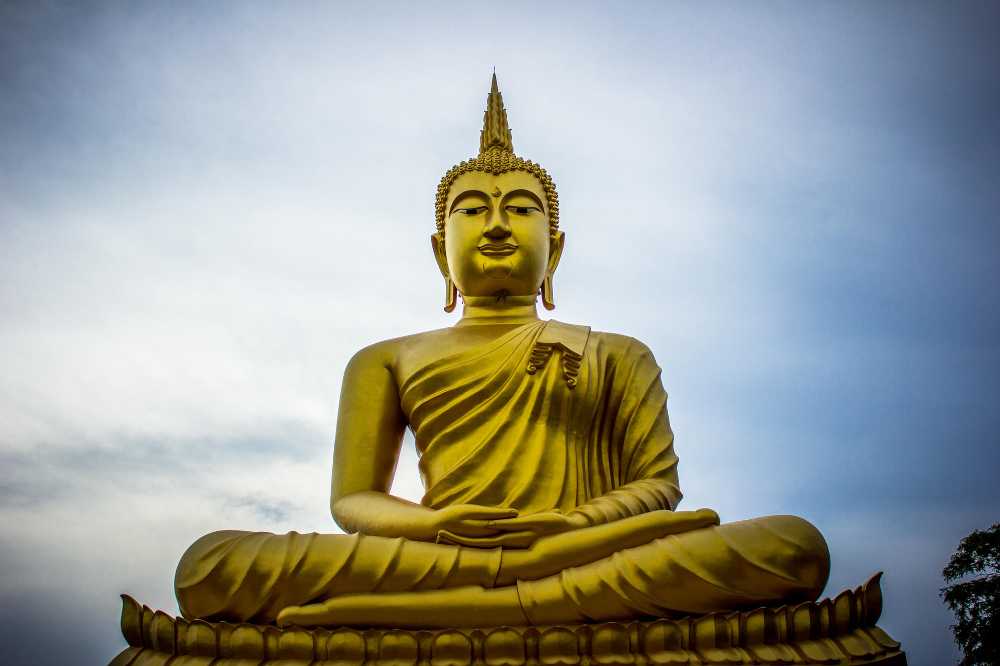
Proper dress required to visit a temple in Thailand.
If you wish to visit a temple or any religious place, you will be specifically asked to take off your shoes and wear a proper dress. You will often be asked to cover your elbows and your knees. Pants or light veils are sometimes available for free at the entrance of the temples. During your days of discovery of Koh Samui, remember to bring a simple veil or light pants with you.
Safety and thefts in Koh Samui
Except on the roads, as stated in our hiring and driving tips, Thailand is a pretty safe country. At least if you're not looking for a fight with Thai people who are usually all Thai boxing passionates (Muay Thai).
Like everywhere else, drinking or being in group can sometimes turn and heat people's minds, so it's a good idea to avoid conflict with your hosts, and remember that you'll probably always be wrong in any delicate situation because the other Thais generally defend their compatriots.
Know that there are many Thai people with firearms or knives, so stay away from any altercation and prefer to apology, rather than to cause a trivial situation.
Do not trust the stoutness of Thai people, you may be surprised by the violence of the clashes sometimes taking place on the street.
The thefts are rather rare in Koh Samui, and it seems that they are more often perpetrated by foreigners, taking advantage of their holidays to commit some crimes, thinking, wrongly, to be safe from any law repression. No need to tempt thieves by leaving your valuables unseen and apparent anyway.
Also, think that the average Thai salary is around 10,000 baht a month and that counting your bundles of 1,000 baht banknotes in public could attract the most ill-intentioned.

Always keep your passport and departure card with you or in a safe place.
Do not lose the little white shutter filled when you arrive in Thailand. This "Departure Card" must be returned when you leave the country, and you may be delayed for several hours if you are no longer able to present it.
It may happen that this paper, stapled to your passport by the immigration officer when entering the country, is detached and lost during, for example, photocopying by your hotel or agency rent a scooter or car.
Always be sure to find your passport and this Departure card easily throughout your stay.